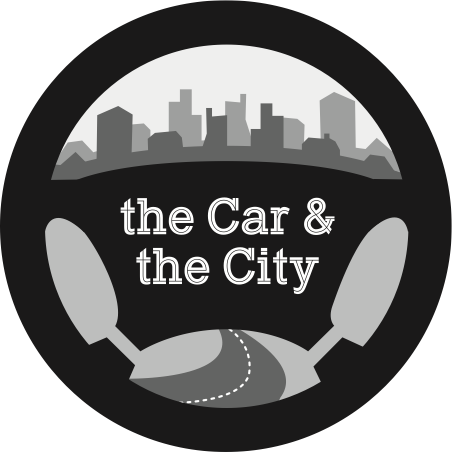|
|
|
|
 |
|
|
Parking World Programme
|
|
|
|
|
|
|
|
|
|
|
Welcome Peter Stonham, Chairman, Landor LINKS
Session 1: The Car and the City
The day starts with a plenary session which addresses the question: What role should the car have in future urban mobility?
The plenary panel comprises representatives from the automotive, transport planning, academic and policy-making sectors.
Cars: Are they the optimal form of city transport?
Professor John Miles, Chairman, IMPACT Working Group on Cities and Supporting Infrastructure, University of Cambridge
Proof of technology is not the same as proof of benefit
Phil Goodwin, Professor of Transport Policy, University College London and University of the West of England
The city mobility concept - The BMWi vision
Joseph Seal-Driver, Director, DriveNow UK, and Harry Clarke, Commercial Director, RingGo
Connecting cars, people and city infrastructure
Kenneth Malmberg, European Business Development Lead for Infotainment and Telematics, General Motors Europe
Followed by debate and discussion
|
|
|
|
 |
 |
 |
 |
|
|
|
|
|
|
|
|
|
Session 2: Parking trends
Chair Mark Moran, Editor, Parking Review
Keynote: The new parking market
The way in which parking is marketed, bought and sold is being transformed. This presentation looks at the real world impact of trends such as the 'sharing economy' and 'open data', growth of pre-booking and impact of third party parking providers, as well as the benefits of running of parking as a retail operation.
Max Crane-Robinson, Commercial Director, NCP
Does free really parking add up?
Free parking will save the High Street. Discuss. Many retailers, business organisations and politicians believe offering ample, free parking is a panacea for town centres. Is there any merit in the notion, or is it pure folly?
John Siraut, Director, Economics, Jacobs
Councils doing business – sharing the load
A growing number of local authorities are working together to save costs and offer more effective services. Hear how a London local authority parking partnership has helped a South Yorkshire council clear a build-up of drivers' correspondence and how the business model can developed and grown.
Ben Stephens, Head of Bromley and Bexley Shared Parking Service
Tackling Blue Badge abuse
Misuse of Blue Badges is a problem facing Local authorities and genuine Blue Badge holders. Brighton & Hove City Council, East Sussex County Council & Sussex Police have been working together on a new approach to proportionately deal with the offence.
Lynne Donnelly, Blue Badge Manager, East Sussex County Council & Yvonne Harvey, Parking Services Senior, Brighton & Hove City Council
A view on the future of CCTV enforcement
Digital camera technologies have transformed the enforcement of parking and moving traffic regulations. The latest unattended camera systems are enabling local authorities to focus resources where most needed in their quest to reduce traffic congestion and make streets safer for all road users.
Ade Ford, Head of Sales - Civil Enforcement, Siemens
|
|
|
|
 |
 |
 |
 |
|
|
|
|
|
|
|
|
Session 3: Adventures in space and time
This session will look at how the implications of new parking payment, enforcement and management technologies.
Chair John McArdle, independent consultant
Keynote: Personalised parking time
Parking used to be about tickets, machines, signs and lines. Now it is all apps and algorithms. Some operators are already preparing for a world of connected cars, e-permit and life lived via smartphones. We are entering an era in which drivers will increasing expect to control where and when they park, understand exactly how much they have paid and not be penalised. In effect they want to 'personalise' time.
Dan Hubert, Chief Executive and Co-founder, AppyParking and Lee Hudson, Chief Operating Officer, AppyParking
What is performance pricing?
Performance pricing is a method that has been established in some cities in the US, Canada and New Zealand. It uses a dynamic pricing approach to find an optimum to ensure that parking is well used and supports local communities whilst ensuring that there is enough parking availability for those that need it. Given that the Government's March 2015 Operational Guidance to Local Authorities on Parking Policy and Enforcement includes statements that 'charges can reflect the value of kerb-space' and that it is right for parking operations to be based on 'a desirable occupancy rate', is it now a matter of time before performance pricing comes to the UK?
Andrew Potter, Technical Director, WSP Parsons Brinckerhoff
The ticketless car park
Drivers are increasingly looking for easier ways to pay for parking without using cash. Technologies such as ANPR and smartphones have made it much easier to set up ticketless off-street operations that recognise both casual and regular account customers.
Rohan Bloice, Business Development Manager, ADVAM UK
Self-serve: drivers’ PCN queries answered in 2 minutes not 2 weeks
Drivers querying penalty charge notices (PCNs) online traditionally receive a reply in 2-6 weeks. Now, an interactive self-serve system enables drivers to get on-the-spot answers and guidance, and on any device.
Jason Barbour, Managing Director, Barbour Logic
Panel: Future proofing your operation
Phone payment, smartphone apps, bay sensors, LED lighting, ANPR, electric vehicle charging points... the technology of parking is continually evolving. So how can parking operators ensure the systems they invest in today will not be obsolete within years, or even months! This discussion looks at issues such as: identifying customer needs; smarter procurement; the potential benefits of using the 'Service as' model.
Panellists include:
-
Grahame Rose, Director of Development, CP Plus
-
Paul Moorby, Managing Director, Chipside
-
Alex Stephany, Chief Executive Officer, JustPark
-
Richard Talbot, Principal Consultant, The Railway Consultancy
|
|
|
|
 |
 |
 |
 |
|
|
|
|
|
|
|
|
Session 4: A socially and environmentally friendly role for cars? Case studies
The day concludes with delegates from Parking World, The Car and the City and Space & Place coming together to listen to stories from cities that have developed and implemented policies such as mobility as a service initiatives, speed restrictions, car-free streets, cycle schemes, car clubs, park & ride schemes, maximum parking standards, etc.
The context: the rise of urban mobility services: past trends and future prospects
Professor John Polak, Chairman, Centre for Transport Studies and Director, Urban Systems Laboratory, Imperial College London
Helsinki, Finland: a traffic lab for new era mobility, and Helsinki's Mobility on Demand service
Sampo Hietanen, Founder, Mobility as a Service, Helsinki, and CEO, ITS Finland
Milton Keynes: what driverless futures will mean for the city
Brian Matthews, Head of Transport Innovation, Milton Keynes Council
Followed by a panel discussion and Q&A with guest speakers from the day, chaired by Professor Polak
-
John Siraut, Technical Director, Economics, Jacobs
-
Nick Lester-Davis, Corporate director of Services, London Councils
-
Steve Melia, Senior Lecturer in Transport and Planning, University of the West of England
-
Max Crane-Robinson, Commercial Director, National Car Parks
-
John Dales, Director, Urban Movement
|
|
|
|
 |
 |
 |
 |
|
|
|
|
|
|
Networking reception
A chance for speakers, exhibitors and delegates to discuss the day's learning and also how to enter the Smarter Travel Awards 2016 and British Parking Awards 2016.
|
|
|
|
 |
 |
 |
 |
|
|
Published programme is subject to change. Please refer to this page for latest developments.
|
|
 |
 |
|
|
 |
 |
 |
|
|
|









